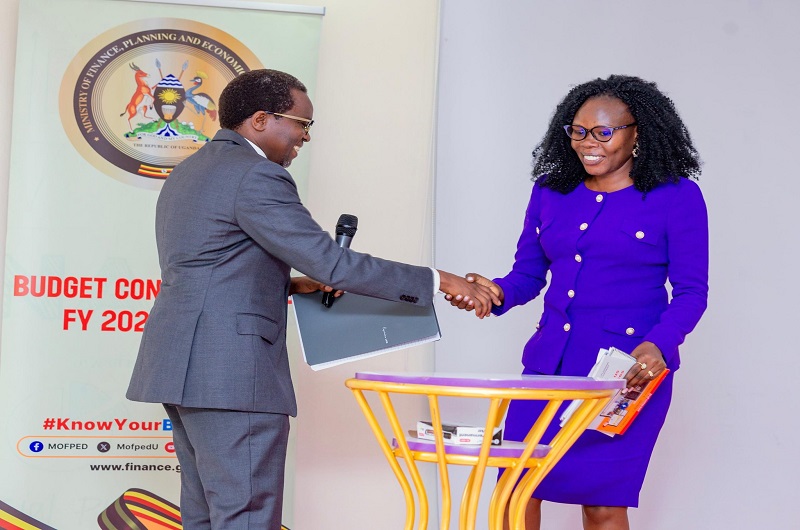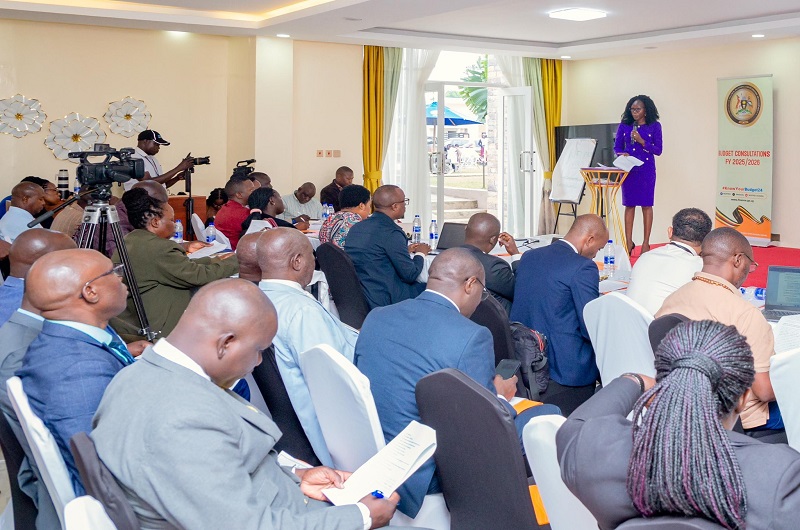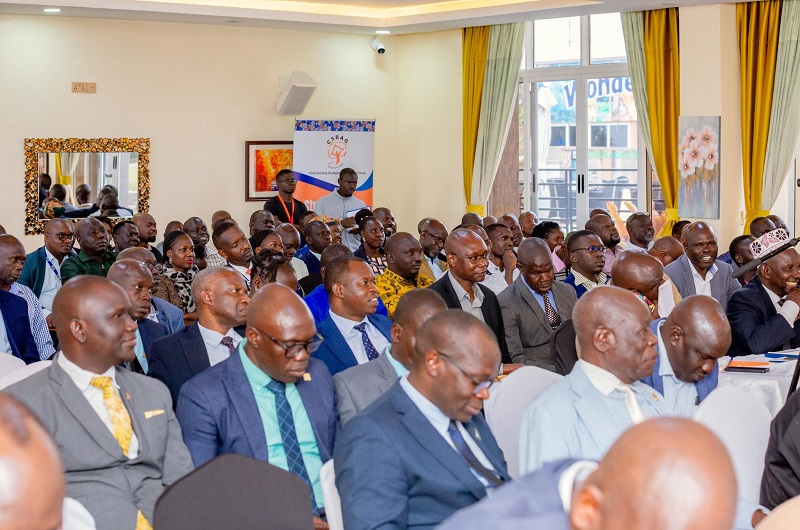Museveni Guides on Ambitious Ten-fold Growth of Economy by 2040

Dr. Omona welcomes Minister Anite to make her remarks during the budget consultative meeting on Monday. COURTESY PHOTO
ARUA. President Yoweri Museveni has guided the Ministry of Finance, Planning and Economic Development (MoFPED) to consider growing the economy ten-fold by 2040.
Under the strategy, the country’s Gross Domestic Product (GDP) is expected to grow from a baseline of USD50 billion in the 2022/2023 financial year to USD500 billion within the next 15 years thus doubling the country’s GDP every five years.
“The fourth National Development Plan (NDPIV) is being finalized and implementation will commence in FY 2025/26. The plan is consistent with H.E the President’s guidance on the ambitious plan to grow the economy ten-fold by 2040,” Mathia Kasaija, the Minister of Finance revealed in a keynote address read by his junior, Evelyn Anite on Monday, September 16, 2024.
This was during the Local Government regional budget consultative workshop for FY 2025/2026 held at Hotel Le Confidentiel in Arua district.

During the meeting, the Minister emphasized the need to ensure that lower Local Government budgets are in line with the priorities of the government to grow the economy ten-fold in line with the strategic direction in the NDPIV.
“Growing the economy ten-fold by 2040 requires shifting to a higher growth trajectory of propelling the economy to double-digit growth; raising the tax-to-GDP ratio to 30 percent; raising per capita GDP from the current USD1,146 to USD7,000; doubling the level of savings in the economy from 20 percent of GDP to 40 percent to match the required level of investment; raising the share of exports to GDP from 12 percent in 2022 to 50 percent, and the share of manufactured products in merchandise exports from 13 percent to 50 percent, among others,” Kasaija explained.
He noted that the above aspirations will be actualized through four key growth areas, namely; agro-industrialization, tourism development, mineral development including oil and gas; and science, technology and innovation including ICT.
In her remarks, Anite urged the people of West Nile to use the availability of electricity in the region to boost the economy of the area by venturing into industrialization.
“Our people have been suffering, they have been running their businesses on generators. When the people of West Nile gave land for industrialization from Nebbi, Madi Okollo, Koboko, Yumbe and so on, the land has been staying idle and the reason has been you cannot invest in darkness but the good news is that we are finally connected to the national grid,” Anite said.
“In the last financial year when we came here for the budget consultative meeting, the biggest issue that was raised by our people was the issue of electricity. Now as I announced to you the good news and I want to give us the strategy; the people will never come to develop when they don’t see us developing. So, let us now use the available electricity to invest back home. We need to encourage the West Nilers in the diaspora to come back home and invest their money home because these industrial parks are here, let us develop our place,” Anite advised.

Similarly, Dr. Kenneth Omona, the Minister for Northern Uganda, said he is happy that the West Nile region has now been connected to the national grid.
Omona, however, said what is remaining is finding money to take the electricity into the communities to facilitate production.
“In fact, in this region, we sit in the most lucrative area for trade. If we develop the industrial parks here and manufacture goods from here, I assure you our markets which are very close here (DR Congo and South Sudan) are not manufacturing, so they will depend on us. So, we really want this to be done to ensure that we now go full blast in monetizing our economy,” Omona said.
Abdulmutalib Asiku, the Yumbe district chairperson, said when it comes to service delivery, the districts and sub-counties are the service delivery points but they are being run on meager funds.
“Hon. Ministers, our experience as leaders of districts is that we have so much been relying on the Discretionary Development Equalization Grant (DDEG) funding and right from 2021/22 financial year, the DDEG funding has been reducing and as we talk now, the funds that go to the sub-counties can’t even allow the sub-counties to put a culvert and this to me, is very dangerous. I would recommend that to ensure that decentralization still has a meaning, there is a need for the ministry of finance to increase DDEG funding,” Asiku appealed.
Meanwhile Dr. Paul Onzubo, the Maracha District Health Officer (DHO), said it will be a shame for Dr. Omona to preside over Northern region which is the poorest region in the country.
“That means there is some inequitable distribution of resources that you are part of at the national level. Is that true?” Onzubo asked, adding that if you have noted a challenge, do you just come and communicate to us in a budget conference which is only once in a year?
“Small people sometimes inform the big ones, take note of these issues that I have raised among others and let us see that we unleash the potentials that West Nile have. The moment we have very poor roads that people are fearing to drive to West Nile; not many are using planes by the way to reach here, so these are small things which when added together can change the face of West Nile and Northern Uganda in general,” Onzubo stated.